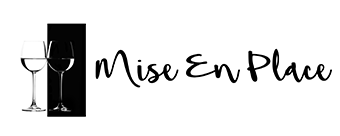Embracing TQM for Hotel Brand Excellence
Total Quality Management in Hotels: A Holistic Approach
Principles and Methodologies
Total Quality Management (TQM) in hotels involves a holistic approach to improving quality across all functions and levels. It encompasses various principles and methodologies aimed at achieving customer satisfaction and operational excellence. Adopting TQM principles ensures a consistent and high-quality guest experience.
Continuous Improvement and Adaptability
TQM is not a one-time initiative but a continuous process of improvement. Hotels must be adaptable and willing to refine their operations based on regular evaluations and guest feedback. This adaptability is crucial for staying competitive and meeting evolving guest expectations.
Hotel Brand Development: Crafting a Unique Identity
Brand Positioning and Messaging
Hotel brand development involves crafting a unique identity that resonates with the target audience. From brand positioning to messaging, every element should be aligned with the hotel’s values and goals. Effective brand development sets the hotel apart from competitors and creates a strong emotional connection with guests.
Visual Identity and Aesthetics
The visual elements of a brand, including logos, color schemes, and interior design, play a significant role in brand development. These elements should be consistent and reflective of the brand’s ethos. A cohesive visual identity enhances brand recognition and contributes to a memorable guest experience.
TQM Techniques for Hospitality: Practical Applications
Process Mapping and Standardization
TQM techniques for hospitality include process mapping and standardization. These methods help in identifying bottlenecks and inefficiencies in various hotel operations. Standardizing processes ensures consistency and allows for performance metrics to be accurately measured.
Employee Training and Empowerment
Employee training and empowerment are vital TQM techniques. Staff should be trained in quality assurance practices and encouraged to take ownership of their roles. Empowered employees are more engaged and contribute positively to the guest experience, thereby enhancing brand value.
Quality Assurance in Hotels: Building Trust
Regular Audits and Inspections
Quality assurance in hotels involves regular audits and inspections to ensure that all operations meet predefined quality standards. These audits provide valuable insights into areas for improvement and help in maintaining a high level of service quality.
Guest Feedback and Reviews
Guest feedback and online reviews are invaluable tools for quality assurance. Hotels should actively seek and analyze this feedback to identify areas for improvement. Responding to feedback and implementing changes builds trust and loyalty among guests, reinforcing the brand’s commitment to quality.
Brand Consistency in Hospitality: The Ultimate Goal
Standard Operating Procedures (SOPs)
Language training benefits include improved guest satisfaction. When staff can communicate effectively in various languages, guests feel understood and valued. This proficiency leads to positive reviews and repeat business, contributing to the hotel’s success.
Monitoring and Evaluation
Consistency requires ongoing monitoring and evaluation. Key Performance Indicators (KPIs) and other metrics should be regularly reviewed to ensure that the brand’s standards are being maintained. This continuous evaluation ensures that the brand remains consistent across all touchpoints, solidifying its reputation for excellence.









